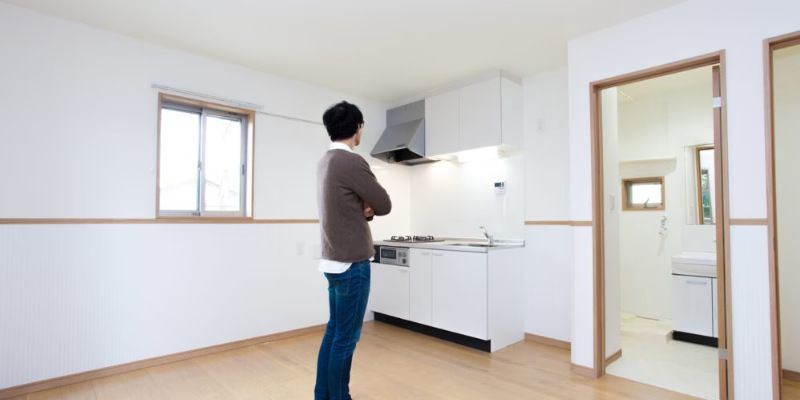If you’re planning to work in Japan or are simply curious about how much people earn there, understanding the Japan salary average is crucial. Whether you’re a local job seeker, a foreign professional, or a student exploring future opportunities, this guide gives you an updated look at salaries, wage trends, and how income relates to the cost of living in Japan in 2025.
How Much Do People Make in Japan (2025 Update)
As of 2025, the Japan salary average stands at approximately ¥4.8 million japan salary average per year, which converts to about USD 31,000 to 33,000, depending on current exchange rates. This figure represents the national average income across all industries and age groups, offering a broad view of earning potential in the country.
However, this number can be significantly influenced by various factors such as job type, company size, location, level of experience, and educational background. For anyone planning to work or live in Japan, especially foreigners looking to relocate. it’s essential to understand how this average compares across different employment types and regions.

Monthly Salary Breakdown in Japan
On average, employees in Japan earn about ¥400,000 per month before taxes and deductions. This monthly figure includes both basic salary and allowances such as transportation, housing, or overtime.
- Full-time workers often earn more than ¥5 million per year, especially in urban centers or specialized professions like IT, finance, or engineering.
- Part-time and dispatch workers, on the other hand, typically receive much lower compensation, often ranging between ¥1.8 to ¥2.5 million annually, depending on hours worked and the nature of the job.
This wage gap between permanent and non-permanent employees has been a long-standing issue in the Japanese job market, though recent reforms aim to close that gap through equal pay legislation.
Salary Variation By Region
Where you live in Japan can have a big impact on your income. For instance:
- In Tokyo, the economic heart of the country, average salaries often exceed ¥5.5 million per year due to a high concentration of multinational companies, tech firms, and financial institutions.
- In contrast, more rural prefectures such as Akita, Kochi, or Kagoshima may see average salaries closer to ¥3.5 million per year, reflecting the lower cost of living and slower economic activity.
For foreign workers, urban areas offer better opportunities and salaries, especially if you’re fluent in Japanese and have specialized skills.
Top Insights for Today’s Job Hunters
While the Japan average salary provides a helpful reference point, it’s important to consider total compensation, including:
- Annual bonuses (often paid in summer and winter)
- Transportation subsidies
- Social insurance contributions
- Pension schemes available for long-term staff members
- Paid vacation days and overtime compensation
Many companies in Japan offer bonuses equivalent to 2–5 months of base salary, meaning that total income can be significantly higher than the base pay might suggest.
Is the Average Salary Enough to Live in Japan?
Whether ¥4.8 million per year is enough to live comfortably depends on several factors, most importantly location and lifestyle.
In Tokyo:
- Rent for a 1-bedroom apartment can cost anywhere from ¥80,000 to ¥150,000 per month.
- Monthly expenses, including utilities, food, transportation, and insurance, may easily total ¥150,000–¥200,000.
- For single professionals, a monthly income of ¥300,000–¥400,000 is typically sufficient, but saving money might be a challenge.
In regional cities:
- Living costs are lower, and many workers with a salary of ¥250,000/month live relatively comfortably.
The Japan salary average in 2025 reflects a competitive, yet complex job market that continues to evolve. While the average annual income of ¥4.8 million offers a general benchmark, actual earnings vary widely based on industry, job type, region, and experience.
If you’re considering moving to Japan or switching careers within the country, researching industry-specific salary data and cost of living in your target area is crucial. Combine that with your own qualifications, and you’ll be better positioned to negotiate a fair compensation package that supports your lifestyle goals in Japan
Minimum Wage in Japan
Japan’s minimum wage is determined on a regional basis, meaning each prefecture sets its own hourly rate. As of 2025, Tokyo has the highest minimum wage at approximately ¥1,120 per hour. In contrast, less urbanized areas such as Okinawa and Tottori offer lower rates, typically around ¥900 per hour. While these figures have increased steadily over recent years due to government policies aimed at improving living standards, the minimum wage still lags behind the actual cost of living, especially in major cities like Tokyo or Osaka. For single individuals living independently in urban areas, this wage may not be enough to cover essential expenses such as rent, transportation, and daily necessities. As a result, many workers often need to take on multiple jobs or seek additional income to maintain a basic standard of living.
Variables Impacting Pay Rates Across Japan
Several key factors influence salary levels across Japan, leading to significant variations depending on personal and professional circumstances:
- Location: Wages are generally higher in major urban centers like Tokyo, Yokohama, and Osaka, where the cost of living is significantly elevated. In contrast, rural regions tend to offer lower salary ranges.
- Industry: High-demand fields such as IT, finance, and pharmaceuticals typically offer some of the highest salaries. On the other hand, hospitality, retail, and service sectors tend to pay less.
- Experience: Salary levels increase substantially with work experience. Senior professionals often earn two to three times more than entry-level employees.
- Education: Graduates from prestigious institutions like the University of Tokyo or Kyoto University often receive more competitive offers and better career advancement opportunities.
- Age Group: Income usually rises with age and experience, peaking between ages 45–54, before stabilizing or declining as retirement approaches.
- Job Role: Managers, technical specialists, and executives typically receive much higher compensation than administrative or support staff, reflecting the responsibilities and skillsets required for those positions.
Understanding these variables is crucial for job seekers, expats, and employers alike when evaluating compensation packages and planning career moves in Japan.
Gender Pay Gap in Japan
Despite Japan’s advanced economy, the country continues to face a notable gender pay gap. On average, women earn 20–25% less than men, especially in high-paying sectors like technology, finance, and executive management. This wage inequality stems from several factors, including traditional gender roles, underrepresentation of women in senior leadership positions, and a lack of flexible work arrangements for working mothers. Although there have been policy efforts to promote gender equality in the workplace, progress remains slow, and the wage gap continues to be a barrier to economic equity for women in Japan.
Salary Trends and Increments in 2025
In recent years, many Japanese companies have begun transitioning from traditional seniority-based pay structures to merit-based salary systems. This shift aims to reward performance, skills, and contribution rather than just years of service. By 2025, the average annual salary increase is estimated to be around 2.5 – 3%, though this varies depending on individual performance and the financial health of the company. In addition to base salary, seasonal bonuses, usually paid in summer and winter remain a significant part of total compensation, often contributing 15–25% of an employee’s annual income. This evolving pay model reflects Japan’s broader efforts to enhance productivity and attract younger, skilled workers.
Japan Salary Average for Foreign Workers
Foreign professionals in Japan, especially in IT, engineering, and language education, can expect competitive wages:
- English teachers (ALT/ESL): ¥250,000–¥320,000/month
- Software engineers: ¥5–8 million/year
- Business managers: Often exceed ¥10 million/year with experience and language proficiency
That said, non-Japanese workers in lower-skilled roles (e.g., agriculture, factory jobs) typically earn closer to the minimum wage.
Is the Japan Salary Average Enough to Live Comfortably?
Whether the average salary is “enough” depends largely on lifestyle and location:
- Tokyo or Osaka: Higher income is often offset by elevated housing and transport costs.
- Single person: Can live modestly on ¥250,000–¥300,000/month.
- Families: Require more than ¥400,000/month for a comfortable lifestyle.
Monthly Living Costs:
Living in Japan, particularly in major cities like Tokyo, can be financially demanding, especially for those earning minimum wage. While salaries have gradually increased over the years, they often do not keep pace with rising living costs. For example, a typical monthly budget for a single person includes essential expenses such as rent, food, transportation, and utilities. Below is a general breakdown of estimated monthly living costs in Tokyo:
- Rent (1LDK in Tokyo): ¥100,000–¥150,000
- Utilities & Internet: ¥20,000–¥30,000
- Food & Groceries: ¥40,000–¥60,000
- Public Transit Expenses: Typically ¥10,000–¥20,000 per Month
These figures show that even with a full-time job at minimum wage, it can be difficult to manage day-to-day living without additional financial support or income sources.
Final Thoughts
The Japan salary average offers a useful benchmark for anyone considering life or work in Japan. While income levels can vary greatly by profession and location, many skilled foreign workers find Japan financially rewarding, especially when combined with its safety, healthcare, and culture.
Before accepting a job in Japan, research thoroughly, compare industry averages, check for benefits and bonuses, and make sure the cost of living aligns with your income. This will help you make informed, financially sound decisions in your Japan journey.






Leave a Reply